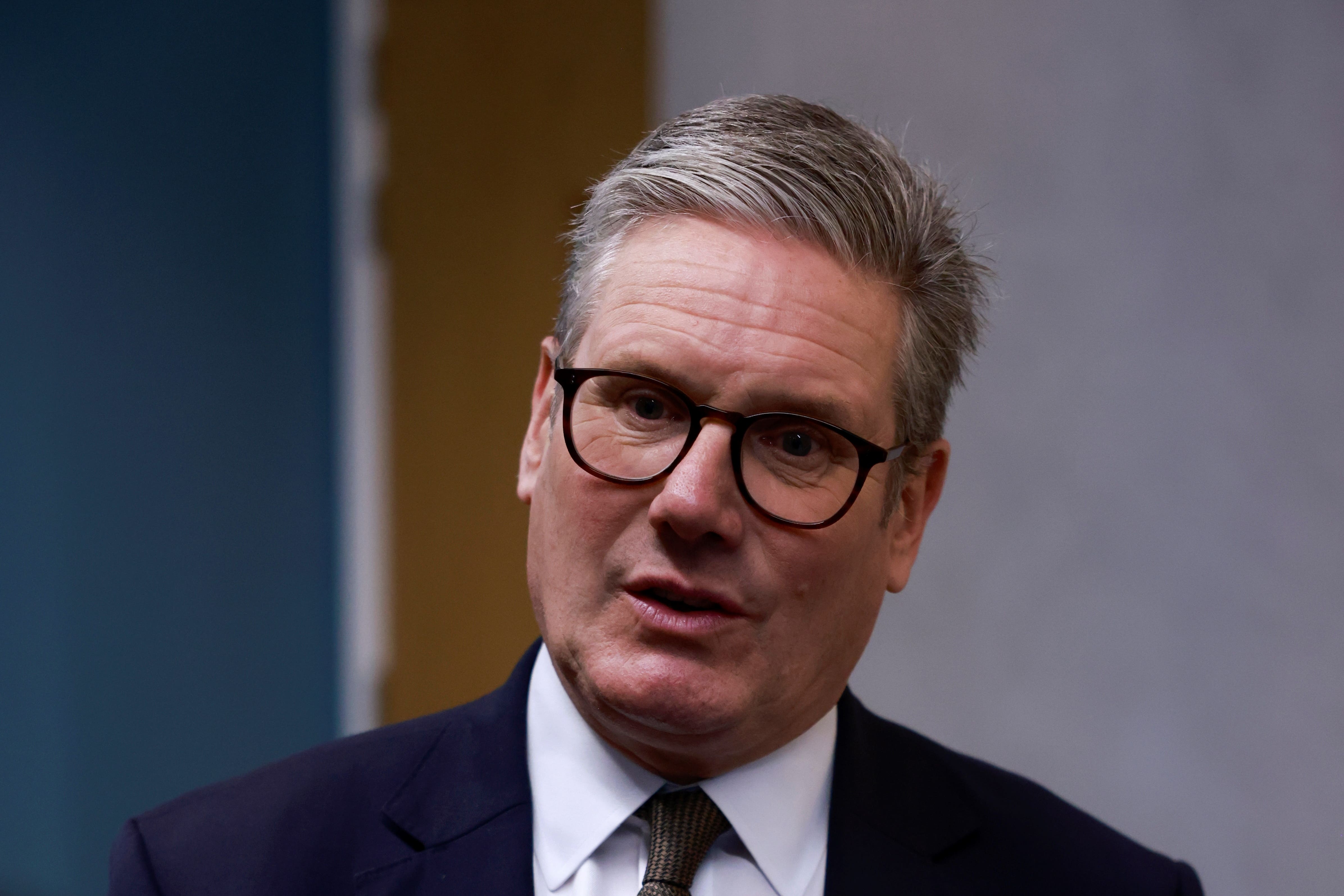Starmer firm on winter fuel payment cuts amid potential Commons revolt
The Government could face a backbench rebellion over plans to scale back who is eligible for the winter fuel allowance for pensioners.

Your support helps us to tell the story
From reproductive rights to climate change to Big Tech, The Independent is on the ground when the story is developing. Whether it's investigating the financials of Elon Musk's pro-Trump PAC or producing our latest documentary, 'The A Word', which shines a light on the American women fighting for reproductive rights, we know how important it is to parse out the facts from the messaging.
At such a critical moment in US history, we need reporters on the ground. Your donation allows us to keep sending journalists to speak to both sides of the story.
The Independent is trusted by Americans across the entire political spectrum. And unlike many other quality news outlets, we choose not to lock Americans out of our reporting and analysis with paywalls. We believe quality journalism should be available to everyone, paid for by those who can afford it.
Your support makes all the difference.Sir Keir Starmer said he recognised that scaling back the winter fuel payment was a “really tough decision” but said Labour must “secure the foundations” of the economy as he faces a potential backbench revolt over the plans.
The Prime Minister has faced criticism from unions and some Labour MPs over the policy, which will see all but the country’s poorest pensioners stripped of the winter fuel payment.
The move has been met with unease among some Labour backbenchers who have said they feel unable to vote with the Government on Tuesday.
Sir Keir told Scottish lobby journalists in Downing Street: “Let me first recognise this a really tough decision that we’ve had to make.”
I absolutely recognise the tough decision
But he said that Labour had been “elected into government on the basis of economic stability, that we would secure the foundations”.
Chancellor Rachel Reeves announced the squeeze in July as part of a series of measures aimed at filling what she called a £22 billion “black hole” in the public finances.
Sir Keir said: “If you’re asking whether I recognise it’s a tough decision I absolutely recognise the tough decision. If you’re asking, would I want to make this decision, the answer is no, but I did not want to inherit a £22 billion black hole, and I’m not prepared to walk past that.”
Some 17 Labour MPs have now signed a motion put forward by Neil Duncan-Jordan calling on the Government to delay implementing the cut.
The motion has also been backed by six of the seven MPs who lost the party whip in July after voting against the King’s Speech over the Government’s refusal to abolish the two-child benefit cap.
Sir Keir told the BBC at the weekend that whether or not Labour MPs will be suspended from the party for voting against cuts to winter fuel payments is “a matter for the chief whip”.
A Number 10 spokeswoman said there was no dissent among ministers over the planned cut in a Cabinet meeting on Monday.
And a spokesperson for the Chancellor said that MPs showed “strong support” for the planned cut during a meeting of the parliamentary party on Monday evening.
Ms Reeves urged Labour MPs to back the move during that meeting, saying: “We stand, we lead and we govern together.”
She added: “I’m not immune to the arguments that many in this room have made. We considered those when the decision was made.”
Under the plans, the winter fuel allowance for pensioners will be limited to only those claiming pension credit or other means-tested benefits.
It is expected to reduce the number of pensioners in receipt of the up to £300 payment by 10 million, from 11.4 million to 1.5 million – most of whom claim pension credit – saving around £1.4 billion this year.
Unite union general secretary Sharon Graham has accused Labour of deciding to “pick the pocket of pensioners” and called instead for a wealth tax to raise funds.
The Prime Minister said that measures to stabilise the economy are “the foundation for the triple lock, which in the end means that the state pension will increase in a way that outstrips the winter fuel payment”.
The Chancellor wrote in The Telegraph on Monday that the Treasury estimates maintaining the triple lock will make a state pension worth around £1,700 more by 2029.
The triple lock guarantees the state pension will rise each year by the highest of either inflation, wage increases or 2.5%.